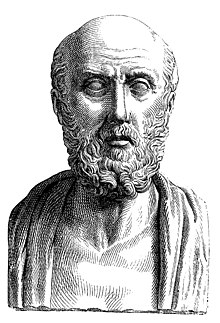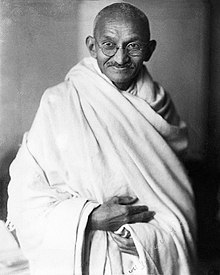Portal:Religion
Appearance
The Religion Portal
Religion is a range of social-cultural systems, including designated behaviors and practices, morals, beliefs, worldviews, texts, sanctified places, prophecies, ethics, or organizations, that generally relate humanity to supernatural, transcendental, and spiritual elements—although there is no scholarly consensus over what precisely constitutes a religion. Different religions may or may not contain various elements ranging from the divine, sacredness, faith, and a supernatural being or beings. (Full article...)
 Vital article
Vital article
Vital articles to understand Religion.
Sikhism (/ˈsɪkɪzəm/ SIK-iz-əm), also known as Sikhi (Punjabi: ਸਿੱਖੀ Sikkhī, [ˈsɪk.kʰiː] , from ਸਿੱਖ, Sikh, 'disciple / learner'), is an Indian religion and philosophy in particular for the Sikh ethnoreligious group that originated in the Punjab region of India around the end of the 15th century CE. The Sikh scriptures are written in the Gurumukhi script particular to Sikhs. It is one of the most recently founded major religious groups and among the largest in the world, with about 25–30 million adherents (known as Sikhs). (Full article...)
 Did you know (auto-generated)
Did you know (auto-generated)
Did you know it about Religion?
- ... that fictional religions, often described in speculative fiction, have in some cases inspired real religious movements?
- ... that across his thirty-six collections, fashion designer Alexander McQueen contemplated religion, told fairy tales, and criticized the fashion industry?
- ... that Musa va 'Uj depicts figures from all three Abrahamic religions?
- ... that some stone circles such as Stonehenge were perhaps great graveyards of honoured spiritual leaders in prehistoric religion?
- ... that the Grave with the Hands commemorates a married couple, divided by society and religion, with hands clasped over a cemetery wall after death?
- ... that Gamaliel's principle has been used to support religious pluralism and reforms within religious groups?
Featured articles in Religion.
Hippocrates of Kos (/hɪˈpɒkrətiːz/, Greek: Ἱπποκράτης ὁ Κῷος, translit. Hippokrátēs ho Kôios; c. 460 – c. 370 BC), also known as Hippocrates II, was a Greek physician and philosopher of the classical period who is considered one of the most outstanding figures in the history of medicine. He is traditionally referred to as the "Father of Medicine" in recognition of his lasting contributions to the field, such as the use of prognosis and clinical observation, the systematic categorization of diseases, and the (however misguided) formulation of humoral theory. The Hippocratic school of medicine revolutionized ancient Greek medicine, establishing it as a discipline distinct from other fields with which it had traditionally been associated (theurgy and philosophy), thus establishing medicine as a profession. (Full article...)
Top 10 WikiProject Religion Popular articles of the month
This following Religion-related articles is a most visited articles of WikiProject Religion, See complete list at Wikipedia:WikiProject Religion/Popular pages.
 Subcategories
Subcategories
Select [►] to view subcategories
Topics
Select [show] to view subtopics
 Get involved
Get involved
For editor resources and to collaborate with other editors on improving Wikipedia's Religion-related articles, visit WikiProject Religion.
Discover Wikipedia using portals










































![Image 1 Theodor Herzl was the founder of the modern Zionist movement. In his 1896 pamphlet Der Judenstaat, he envisioned the founding of a future independent Jewish state during the 20th century. Zionism (/ˈzaɪ.ənɪzəm/ ZY-ə-niz-əm; Hebrew: צִיּוֹנוּת, romanized: Ṣīyyonūt, IPA: [tsijoˈnut]; derived from Zion) is an ethnic or ethno-cultural nationalist movement that emerged in Europe in the late 19th century and aimed for the re-establishment of a homeland for the Jewish people through the colonization of Palestine, a region corresponding to the Land of Israel in Jewish tradition, an area deeply embedded in Jewish history, religion and the identity. Following the establishment of the State of Israel in 1948, Zionism became an ideology that supports the development and protection of Israel as a Jewish state, in particular, a state with a Jewish demographic majority. It has also been described as Israel's national or state ideology. (Full article...)](http://upload.wikimedia.org/wikipedia/en/d/d2/Blank.png)




















